Neue Archivsammlungen
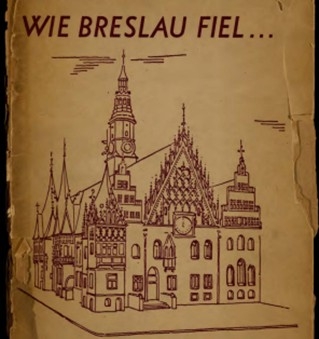
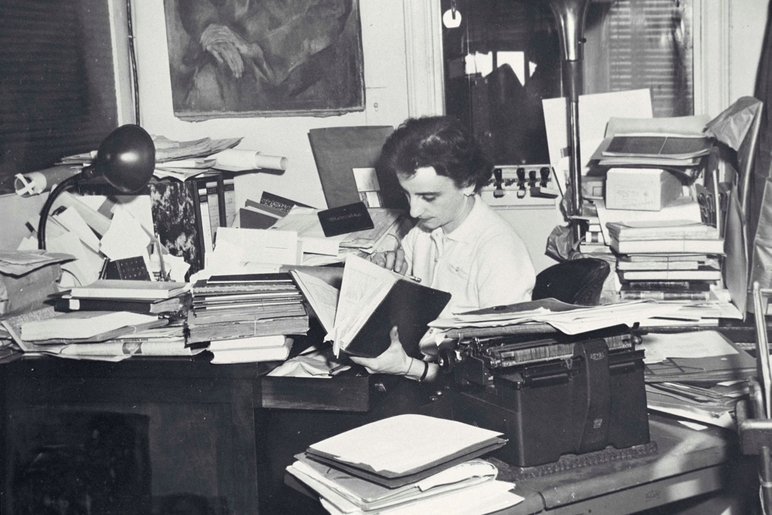
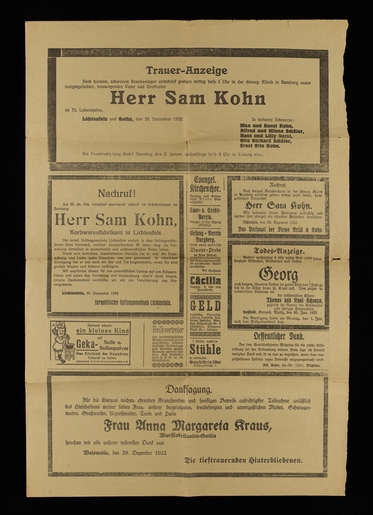
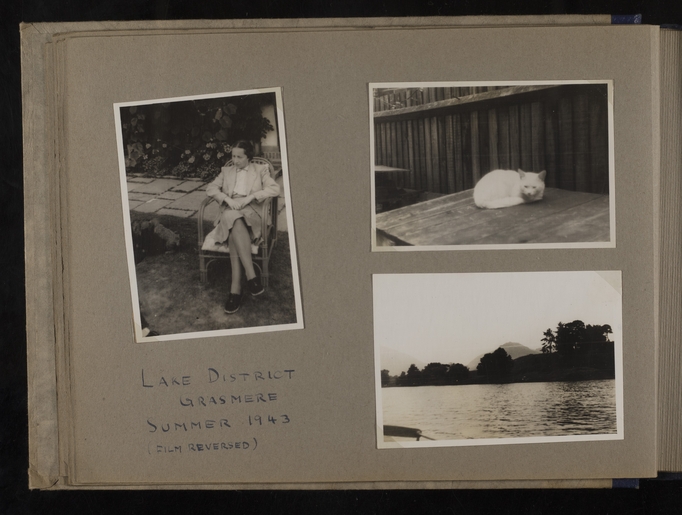
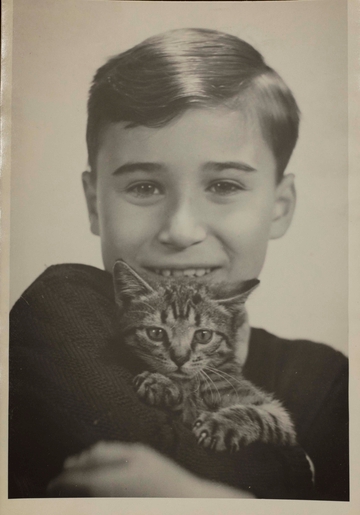
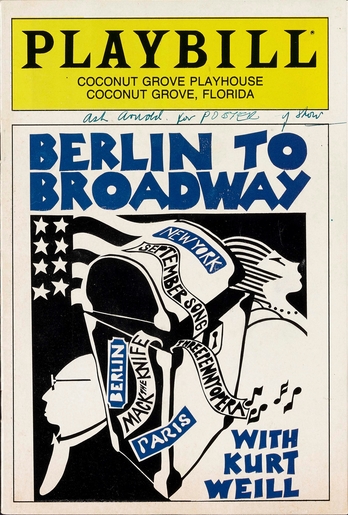
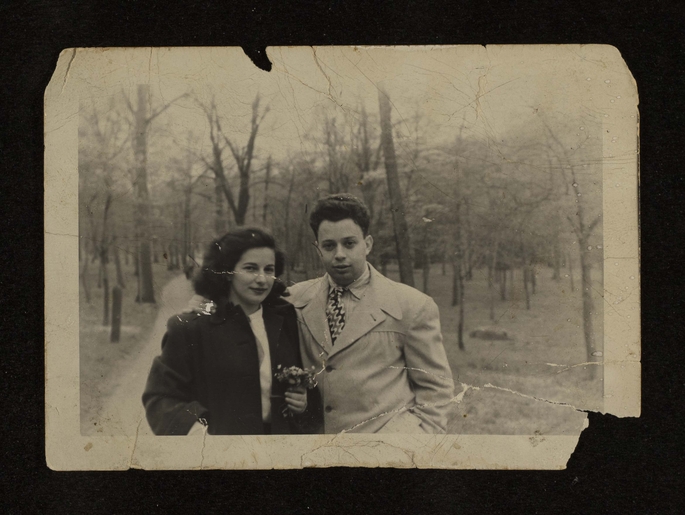
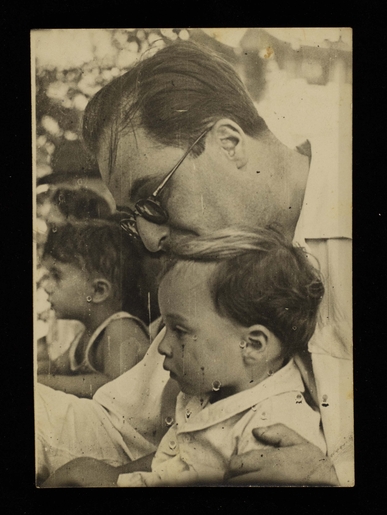
New Archival Collections at the Leo Baeck Institute
The Leo Baeck Institute is continually collecting new archival materials related to the history of German-speaking Jews. Please see in the following a list of recently processed and digitized archival collections, each with a short synopsis. Clicking on the link underneath the title will lead to the collection’s finding aid, which in turn contains links to its digital objects.
Ernst and Gerta Friedlander Family Collection
Finding aid with links to digital objects
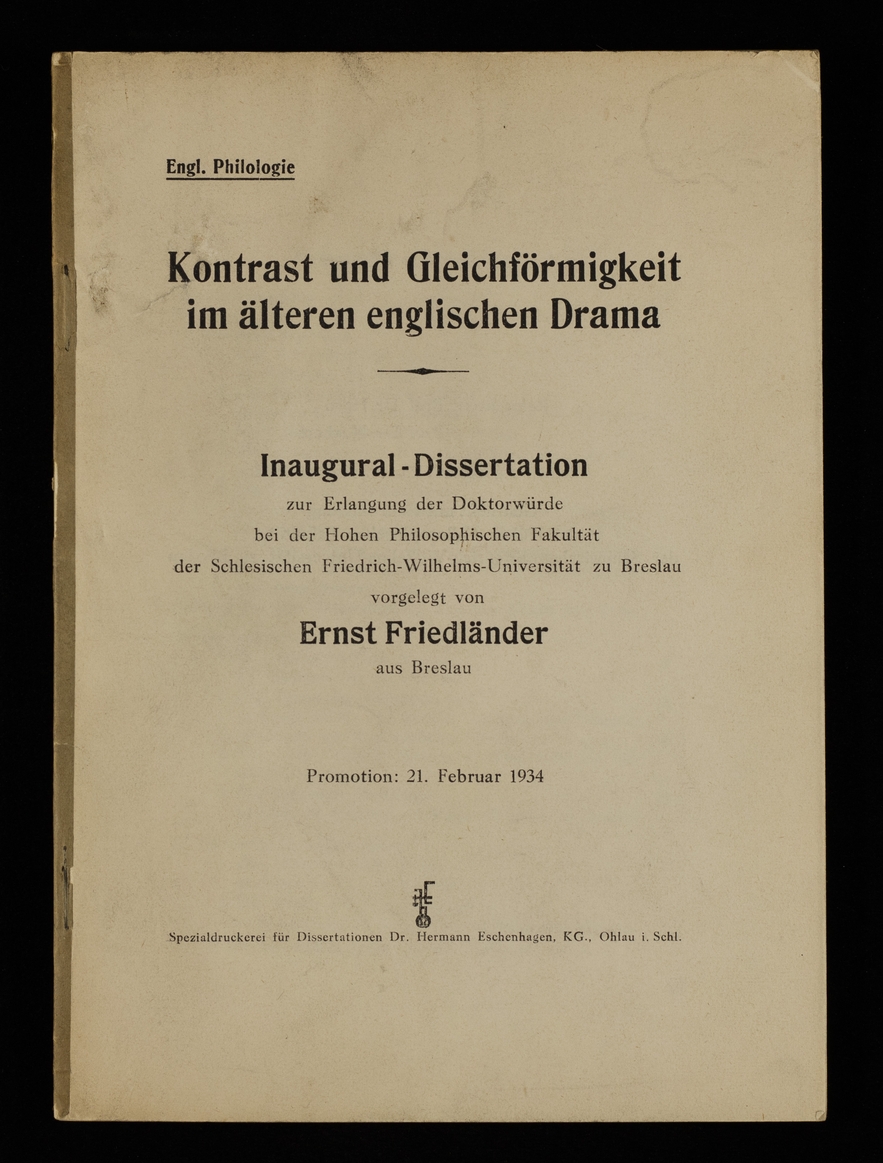
Correspondence, personal documents, and restitution files document the paths of Ernest and Gerta Friedlander from their births in Poland, their survival of the Holocaust, and their immigration to America. Ernest Friedlander was arrested during the November Pogrom in 1938 and incarcerated in the Buchenwald concentration camp until December 20th, 1938. Both Ernest Friedlander and Gerta Friedlander (née Schoenfeld) immigrated to New York in March, 1939. The couple was married in New York in 1942.
Irmgard Foerg Collection
Finding aid with links to digital objects

Personal documents, letters, and photographs illustrate the work of Irmgard Foerg’s career, the first Librarian and archivist of the newly established Leo Baeck Institute in New York City, 1956-1967. Irmgard K. Foerg was born in Munich, Germany, on September 27, 1925. She studied history, German and English at the University of Munich from 1946 to 1949. In 1956, she started to work for the LBI in New York as a research assistant and then from 1958 until 1967 as head of the new archive and library. She became an American citizen in 1966. Her work was foundational for LBI New York collections.
Joseph and Valerie Josefsberg Family Collection
Finding aid with links to digital objects
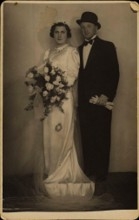
The papers of Joseph and Valerie Josefsberg, Joseph’s brother Arthur and of their parents Bernhard (Berl) and Klara (Chaje) Josefsberg can be found in this collection. Joseph (Joszi) Josefsberg was born in Vienna in 1909 and Valerie (Vally) Stern was born in that same city in 1912. The couple were married in 1937. After “Anschluss” in 1938, Valerie and Joseph escaped the Nazi regime to Switzerland and then to France, where they were interned in camps. They later reunited and escaped to Switzerland, where they lived under harsh conditions throughout the war and until their emigration to the United States in 1947.
Levi Genealogy Collection
Finding aid with links to digital objects
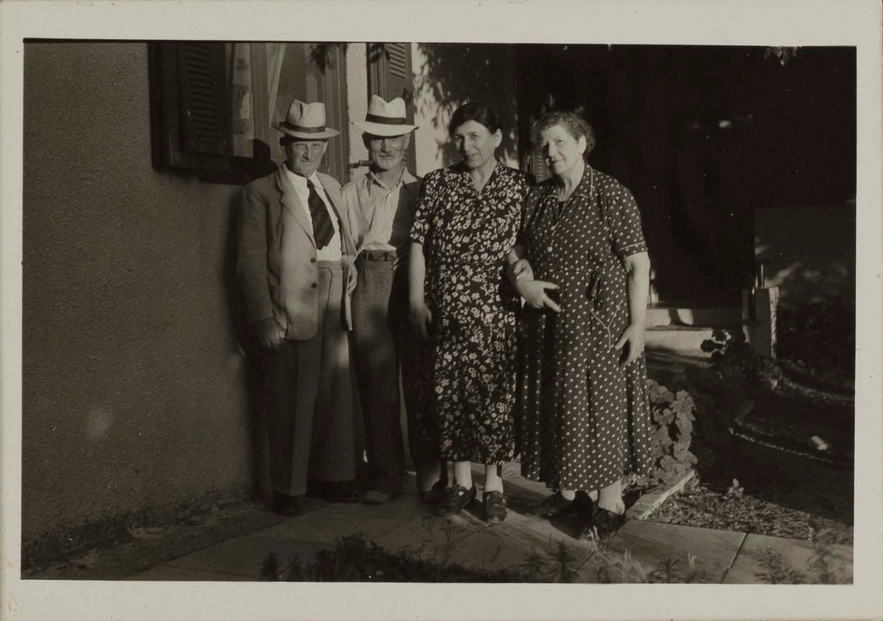
The collection documents the genealogical origins of Arthur Levi (1919-2018) and his wife, Kitty Pappenheim Levi (1925-2022). Arthur Levi was born in Frankfurt am Main in 1919 and immigrated to the United States in 1938, shortly after Kristallnacht. He worked as an accountant and also earned a master’s degree in Jewish studies from the University of Massachusetts. Levi developed an interest in genealogy and self-published three books about his and his wife’s family origins. Kitty née Pappenheim Levi was born in Vienna in 1925. She fled to England via the Kindertransport and then came to the United States in 1941. Kitty and Arthur Levi married in 1947.
Walter S.G. Kohn Family Collection
Finding aid with links to digital objects
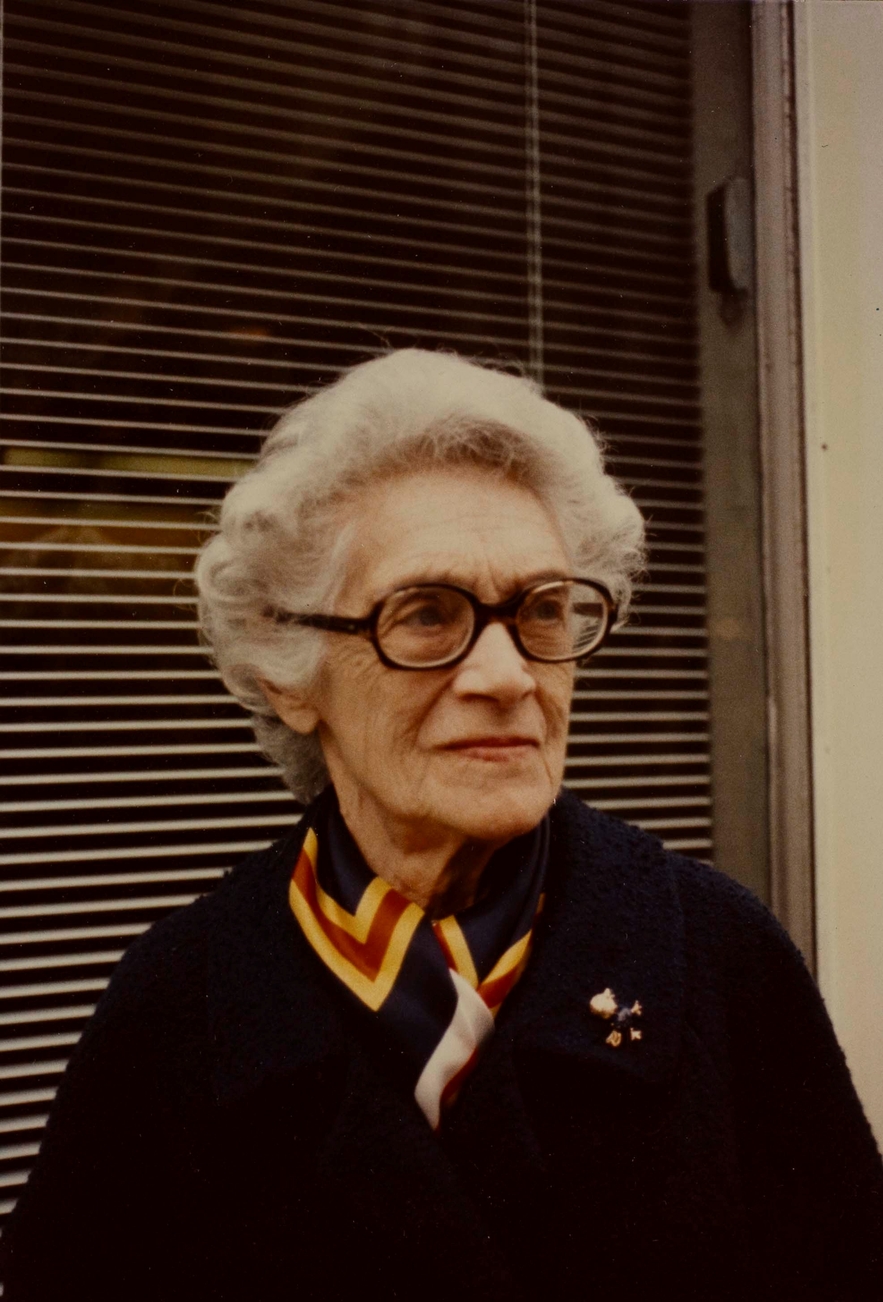
The Kohn Family collection includes correspondence, photographs and documents related to restitution. Anna Perlmann (1887-1972) was born in Georgenburg and studied pharmacy in Koenigsberg. She emigrated to Palestine in 1934, where she worked in social services before starting as a medical officer at the British Prison for Women in Bethlehem in 1945. Edith Burian (1924-2017) was born in Vienna, Austria and migrated to Palestine in 1939. She training as a pediatric nurse in Jerusalem, where she met Anna Perlmann. Edith married Kurt Burian in Haifa in May 1945. After returning to Austria, they immigrated to the U.S. in 1950. Nelly Klein (1913) was born in Vienna, Austria and emigrated to Palestine in 1935. In 1939, she married engineer Konrad Klein and they moved to his hometown Czernowitz (Chernivtsi, Ukraine). After the end of the war, they were sent back to Austria and then emigrated to Israel, later moving to New York. Mathilda (1912-2004) and Arnold Alter (1916-1989) were both born in Austria and emigrated to Palestine. Arnold joined the Union of Musicians in Palestine in 1941. They later immigrated to the U.S.
Bernd and Annorte Zondek Family Collection
Finding aid with links to digital objects
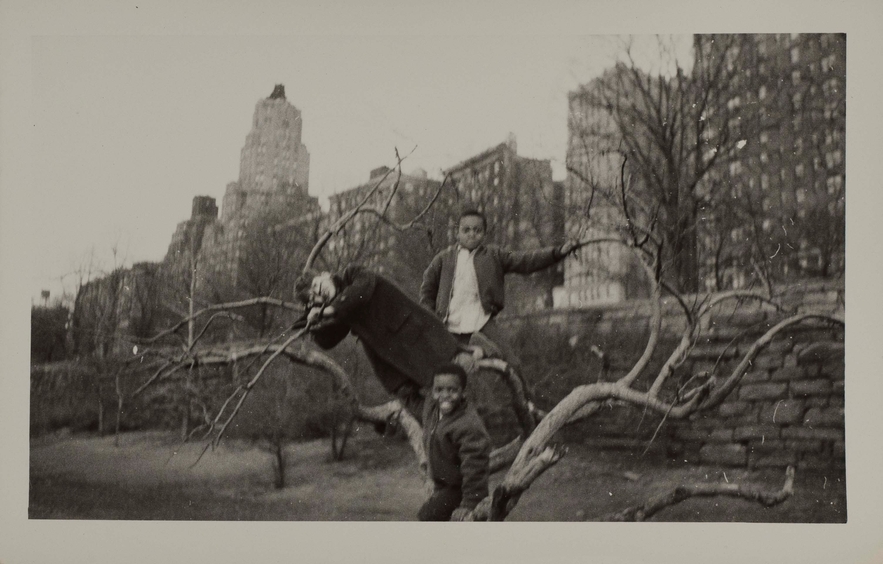
Much of the Bernd and Annorte Zondek Family collection consists of photographs of people and of artwork produced by family members. Birgit Zondek was born in 1921 and her brother, Bernd Zondek, was born in 1924 in Berlin. On March 10, 1933, their father, Hermann Zondek, was dismissed from his position at the hospital. Hermann eventually went to live with his family in Pelestine in 1935. In Jerusalem, Hermann Zondek became director of internal medicine at Bikur Cholim Hospital. His son, Bernd Zondek, receiving a doctorate in mathematical physics from Columbia University in 1954. He lectured at Columbia and then worked as a mathematical physicist at agencies and laboratories in the Army and the Navy for many years. In 1940, Brigit Zondek immigrated to the United States. During her life, she worked as a secretary, author, off-Broadway actress, department store model, and factory worker, and author.
Grete Gold Collection
Finding aid with links to digital objects
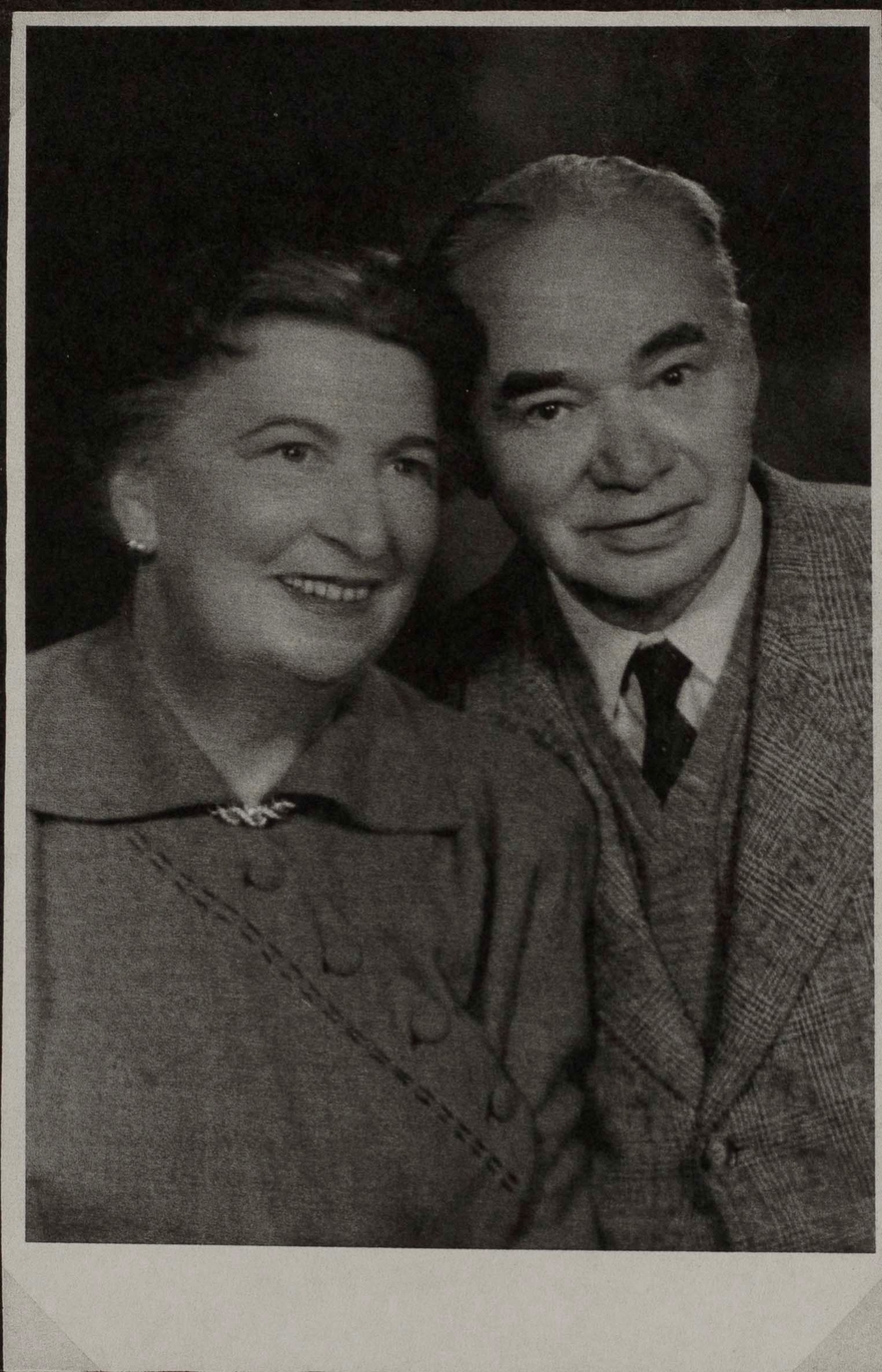
The collection contains correspondence between Grete Gold and her friends about their lives after emigrating to Palestine. Gold (later Heitlinger) was born in Vienna in 1920, where she lived in Vienna’s 2nd District at Rembrandtstrasse. Grete emigrated to Haifa in September 1939, served in the British Army in Cairo, and then emigrated to New York and later to Canada. Grete and her husband Hindrich Heitlinger had two children. Grete Gold Heitlinger passed away in 2005. Her parents had died in the Maly Trostenets concentration camp.
Metz Jewish Community Collection
Finding aid with links to digital objects
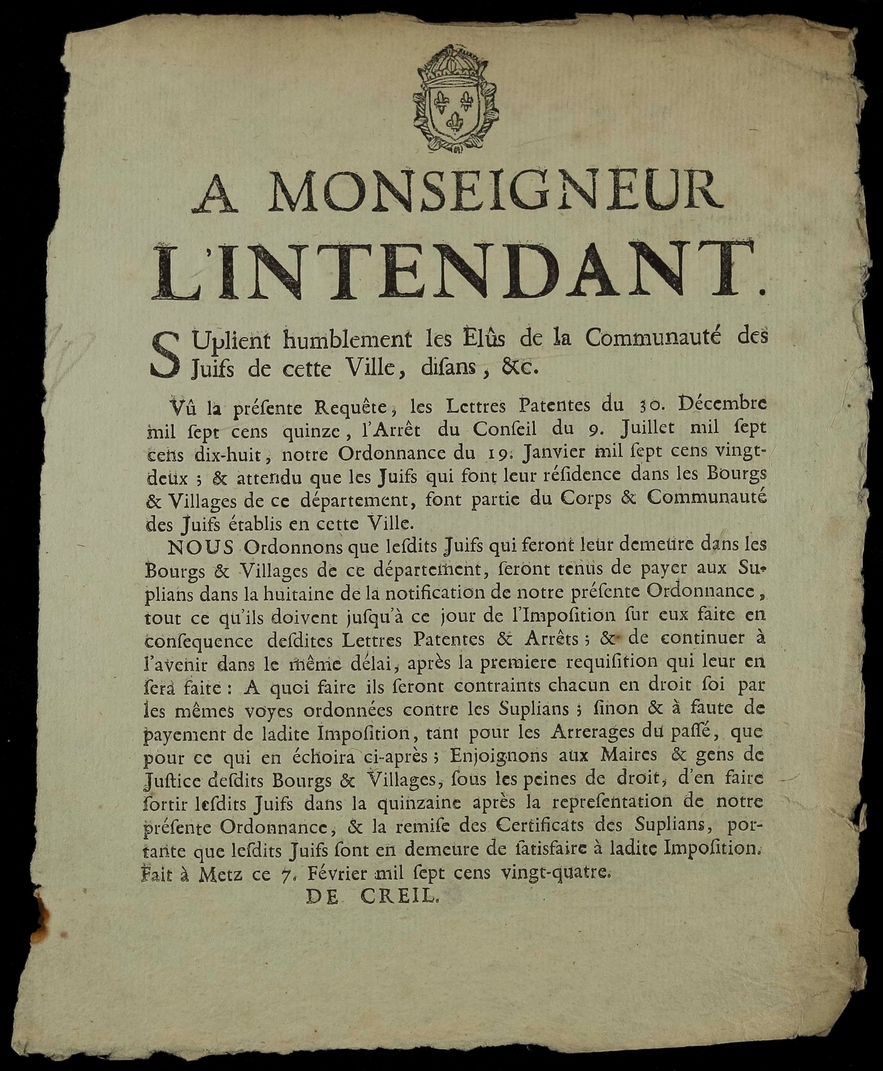
This collection comprises of a decree, a manuscript, and various receipts documenting the taxation and finances of the Jewish community of Metz during the 18th century.
Pepper Family Collection
Finding aid with links to digital objects
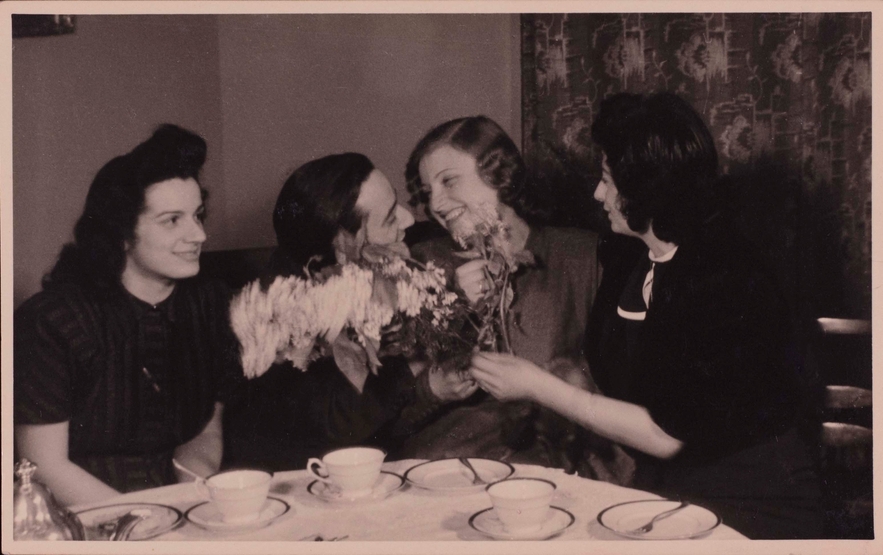
Restitution is the primary topic of this archival collection This collection documenting the lives of Saul Pepper (1910-1979) and his wife Dora née Eisen Pepper (1918-1987). Dora Pepper née Eisen (1918-1987) was a learned dressmaker in Berlin, working from 1933-1937. The Nazis put her into forced labor in an arms factory from 1940 to 1943. She immigrated to US in 1947. Saul Pepper (1910-1979) was born in Wloclawek, Poland. He changed his name to Saul Pepper when he arrived in the United States in 1947 and opened his own grocery store in New York City in 1948. Saul and Dora married on October 2, 1948.
Walter and Inge Finley Family Collection
Finding aid with links to digital objects
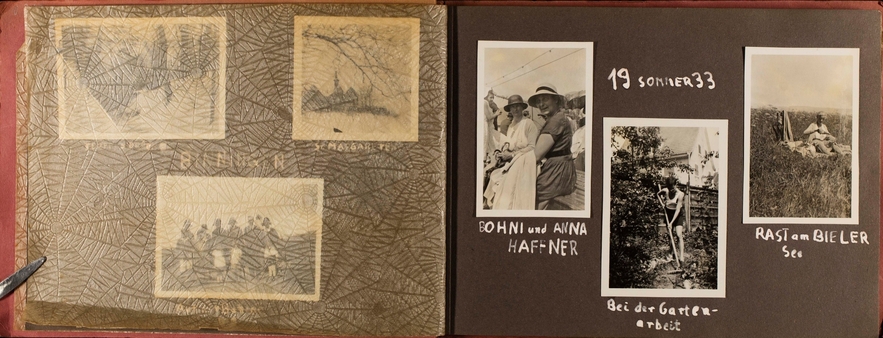
The lives of Walter Finley (born Wolfgang Finkelstein) and his wife Inge Freeman Finley (born Inge Friedlander) are the focus of this collection. Walter and Inge were born to German-Jewish families in 1920 and 1933, respectively. In 1937, Walter was sent to a boarding school in Lausanne, Switzerland to escape the Nazi government. In 1939, he moved to London to join his parents, and all three spent the rest of their lives in England. In 1965, Walter married Inge Freeman (born Inge Friedlander), also the only child of German-Jewish refugees who had fled to London in the late 1930s. Walter and Inge lived for many years in Westbury-on-Trym, a suburb of Bristol, England.
Kurt, Grete, and Steven Goldsmith Collection
Finding aid with links to digital objects
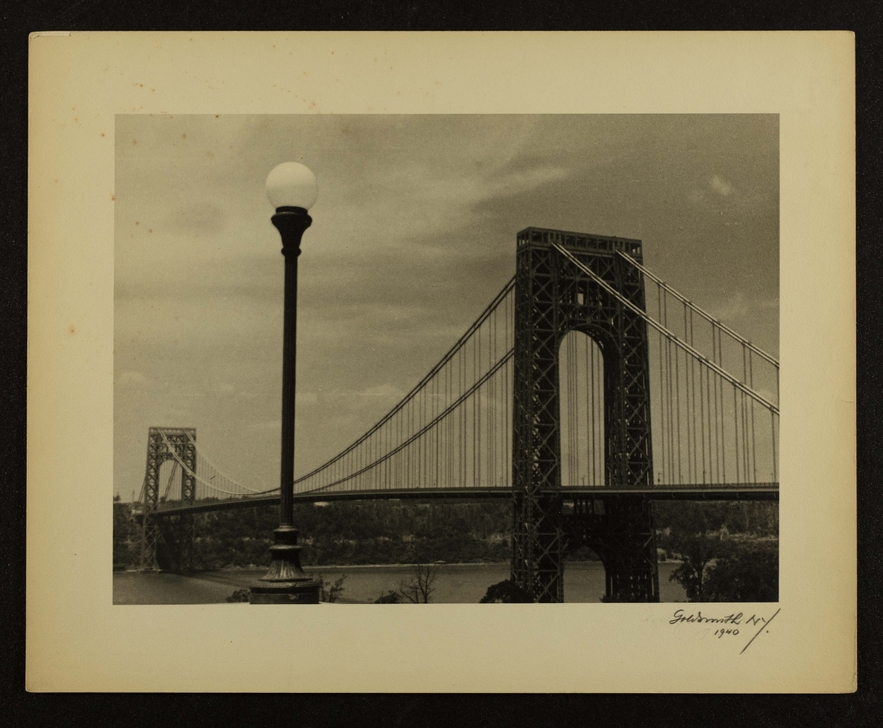
This is an addendum to the Kurt and Grete Goldsmith family collection. The collection contains primarily photographs, which attests to Kurt’s profession as a photographer. Kurt Goldsmith was born in Stolzenau, Germany in 1901. In 1931, Kurt married Margarete (Grete) Lendt. Kurt’s and Grete’s son Hans Stefan – later Steven James - was born in Cologne in 1933. The family fled Germany in 1939 and settled in New York City, specifically in Washington Heights, a neighborhood that embraced many German-Jewish families. Once in the United States, the Goldschmidts Americanized their last name to Goldsmith. Kurt opened a successful photography studio in their apartment.
Henry E. Marcus Family Collection, Part 1
Finding aid with links to digital objects
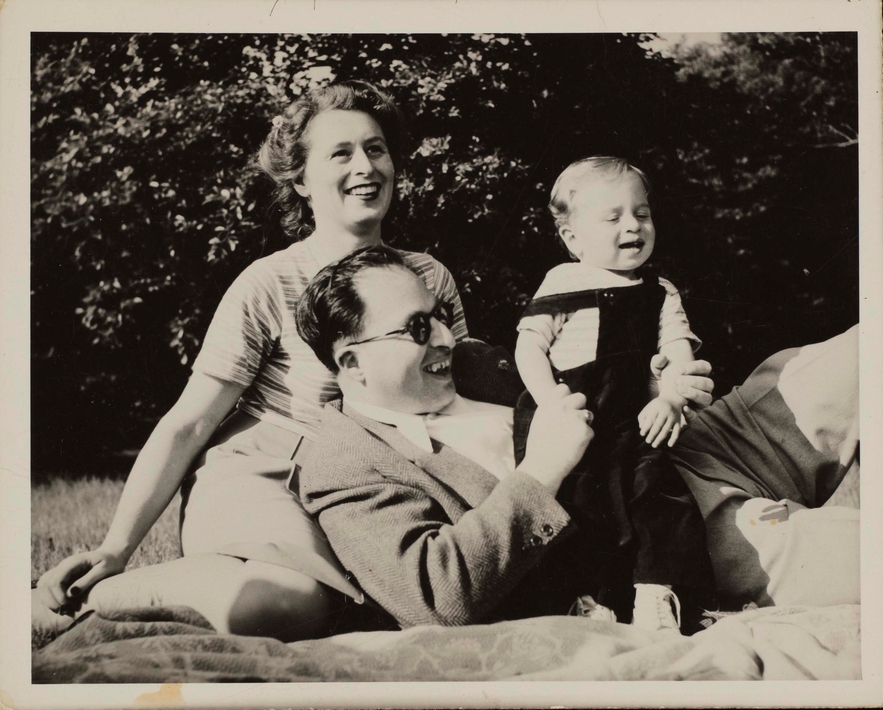
The Marcus family attempted to secure restitution payments for family assets lost during the Holocaust across generations. Heinz (later Henry) Edward Marcus was born in Berlin and later moved to Vienna, where he worked as a private notary, and married dress designer Valerie Schorr. The couple escaped the Nazi rule, immigrating via London to Massachusetts just prior to the outbreak of World War II. For twenty years, until his death in 1966, Henry pursued restitution payments for family holdings confiscated by the Nazis. In the 1990s, Henry's son Richard began to secure reparations for the wealth stolen during the Holocaust from Hugo Marcus’s estate. Ultimately the Marcus family won their case.
Berlin to Broadway Collection
Finding aid with links to digital objects
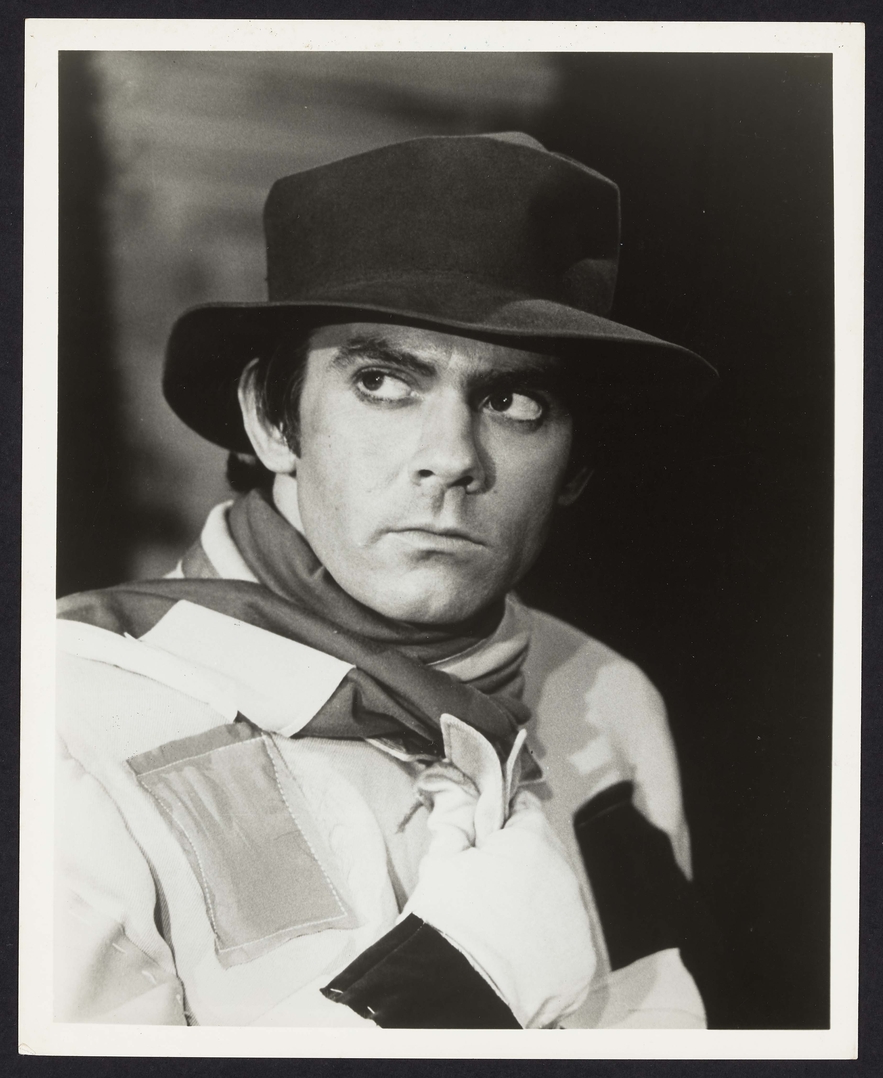
The show “Berlin to Broadway with Kurt Weill: A Musical Voyage” was written and produced by Hank Kaufman and Gene Lerner, who created the show to honor the life of Kurt Weill through his music. The production follows Weill’s career in Germany, through his escape from Naziism to his immigration to the United States, where he became a success on Broadway.
Rosenberg Family Collection
Finding aid with links to digital objects
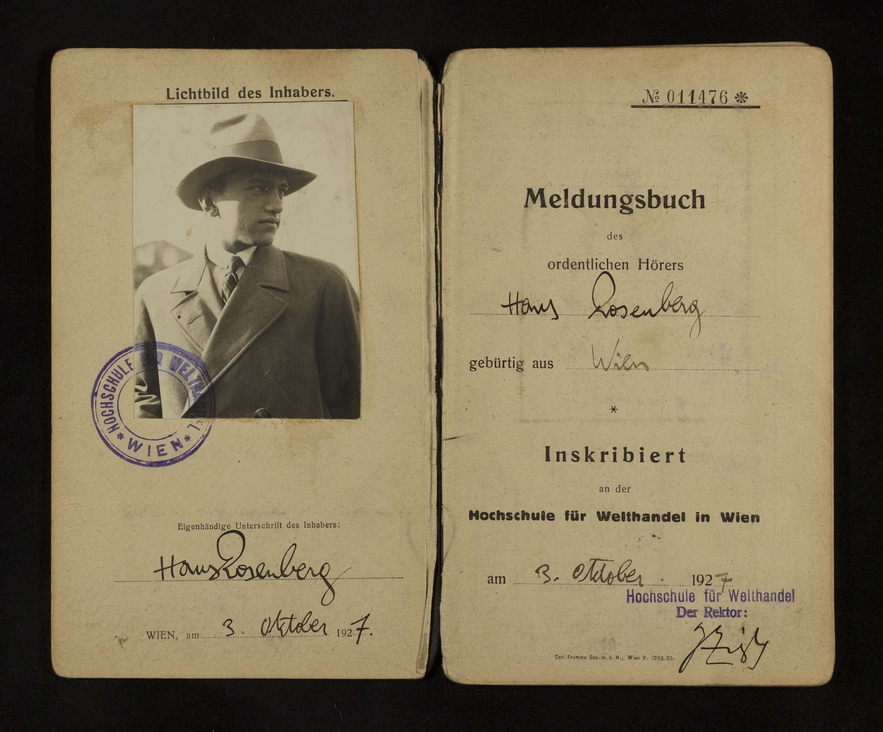
The personal and professional lives of Hans Rosenberg (1908-1982) and his wife Ernestine née Rosner Rosenberg (1912-1962), from their childhoods and early medical careers in Vienna to their final years in Bridgeport, Connecticut are described here. The items from friends and relatives, such as Madeleine née Rosenberg Buchsbaum (1911-2014), are documented in this collection as well. Hans Rosenberg was born in Vienna in 1908 and trained as a physician at the University of Vienna. Ernestine née Rosner Rosenberg was born in Radautz, Bukovina (Radauti, Romania) in 1912. She was raised in Vienna and graduated from the University of Vienna with a medical degree. Ernestine married Hans Rosenberg in 1938. They fled Austria that same year for Great Britain and then came to the United States in 1939. Hans specialized in speech and voice pathology, while Ernestine was a cancer researcher. In 1943, Hans and Ernestine moved to Bridgeport, Connecticut, where they established medical practices and raised three children.
Henry E. Marcus Family Collection, Part 2
Finding aid with links to digital objects
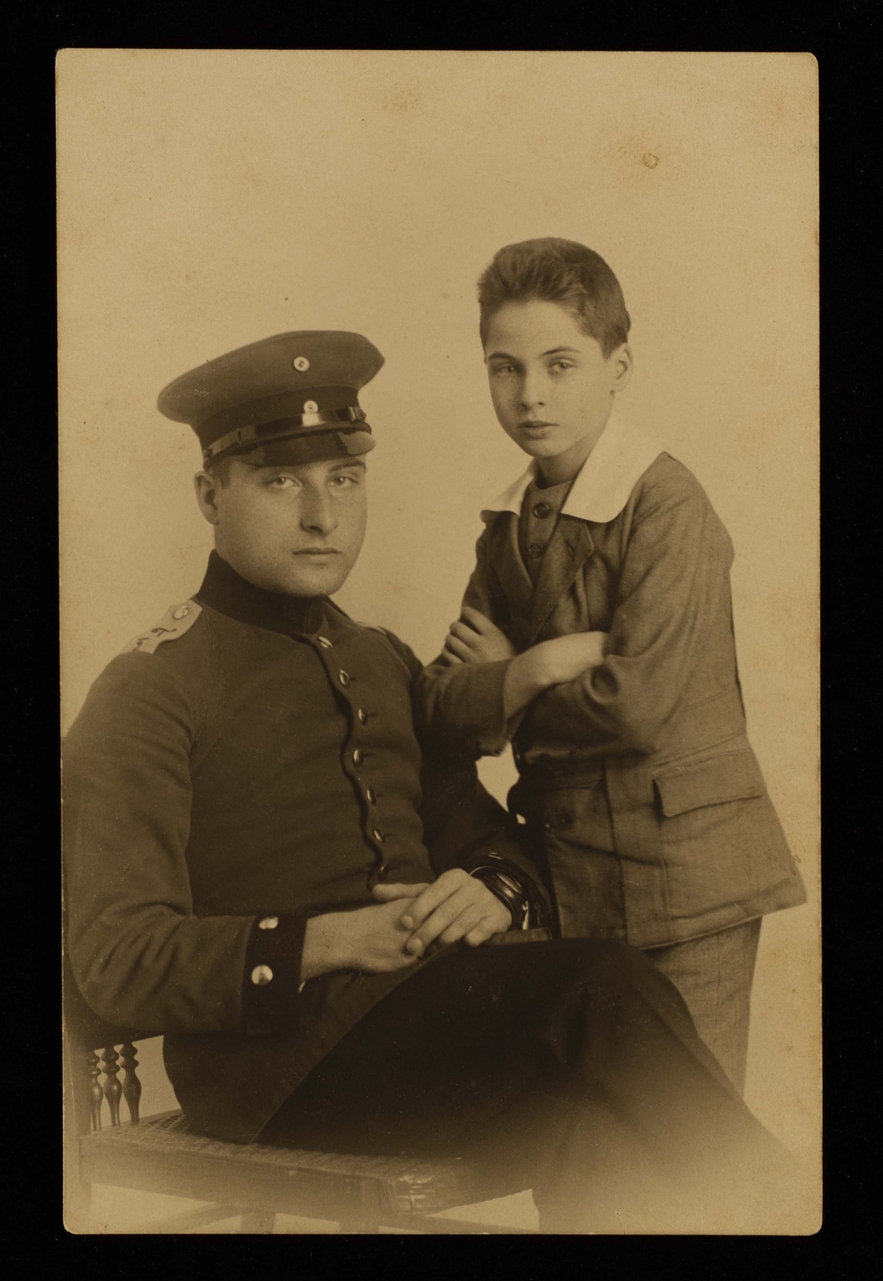
This collection focuses on Henry (born Heinz) Marcus and his family. This collection consists mainly of correspondence between Henry and family members. These letters touch on topics such as attempts at achieving restitution and the fates of family members during and after the Holocaust. Henry Marcus was born in Berlin on July 24, 1907. Henry moved to Vienna, where he worked as a private notary and would meet and marry aspiring dress designer Valerie Schorr. With the Nazi annexation of Austria, Henry and Valerie were forced into hiding until fleeing to Boston, MA by way of London just prior to the outbreak of World War II. In Massachusetts, they raised three sons. Henry dedicated much of his postwar life to securing a future and education for his children. For twenty years he pursued restitution payments for family holdings confiscated by the Nazis, with which he was engaged until his death in 1966.
Schickler-Rosenbaum Family Collection
Finding aid with links to digital objects
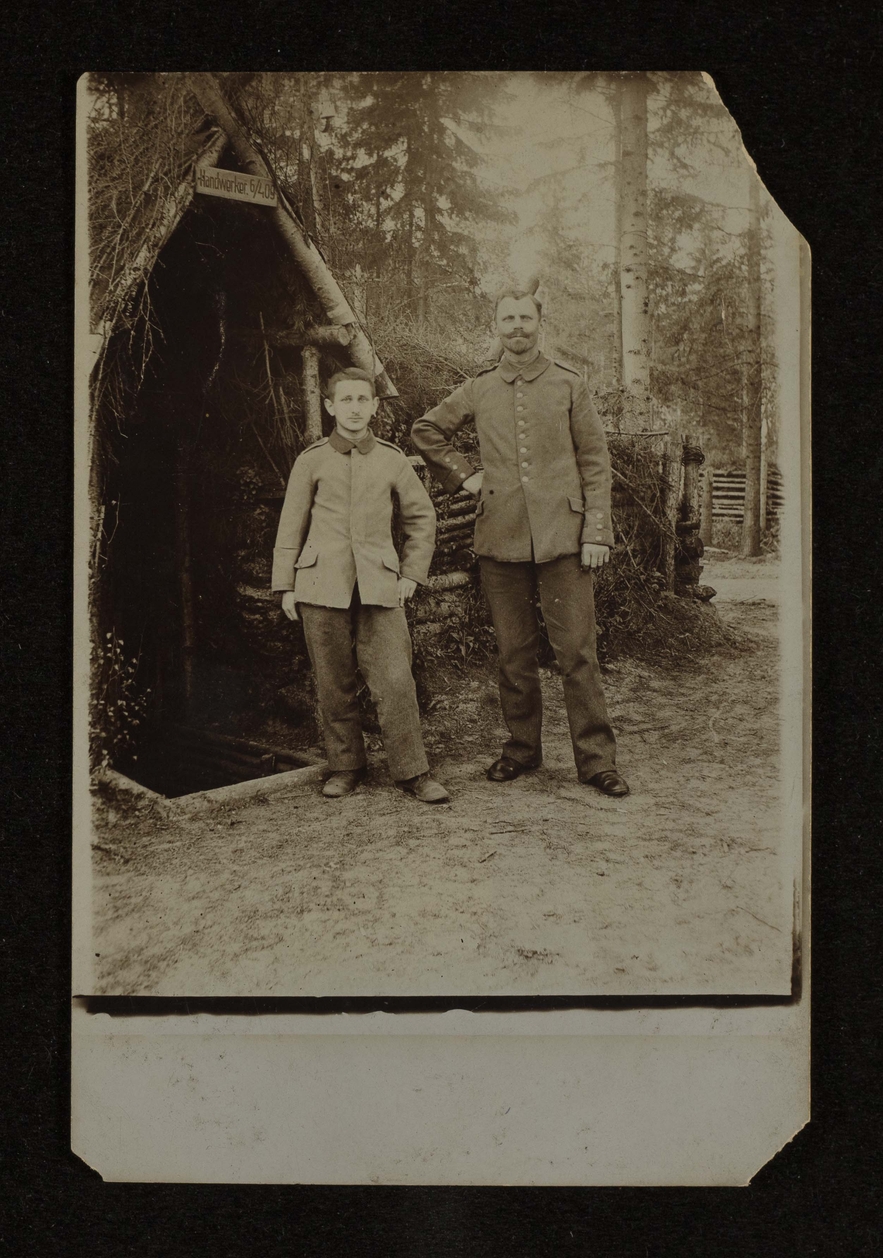
Here the life of Harry Schickler is documented. The collection also contains photographs and other material of the Schickler and Rosenbaum families. Harry Schickler was born on March 17th, 1894. He had three siblings. In 1906, the family moved from Nienburg to Lüneburg, where Adolf Schickler owned a store for shoes and men’s clothing. In 1915 Harry joined the German army to serve in World War I. For his bravery Harry was promoted twice and received the Iron Cross 2nd class. Harry went back to Lüneburg, where he took over his father’s business in 1928. He married Else Katzenstein and they had two daughters. During ‘Kristallnacht’, November 9th, 1938, the house with the Schicklers home and store was set on fire and Harry was imprisoned in Sachsenhausen. After his release, Harry and his family emigrated to New York. In New York Harry Schickler owned a deli in Washington Heights. Harry Schickler died on November 11th, 1976 in New York.
Correspondence by Recha Schma
Finding aid with links to digital objects
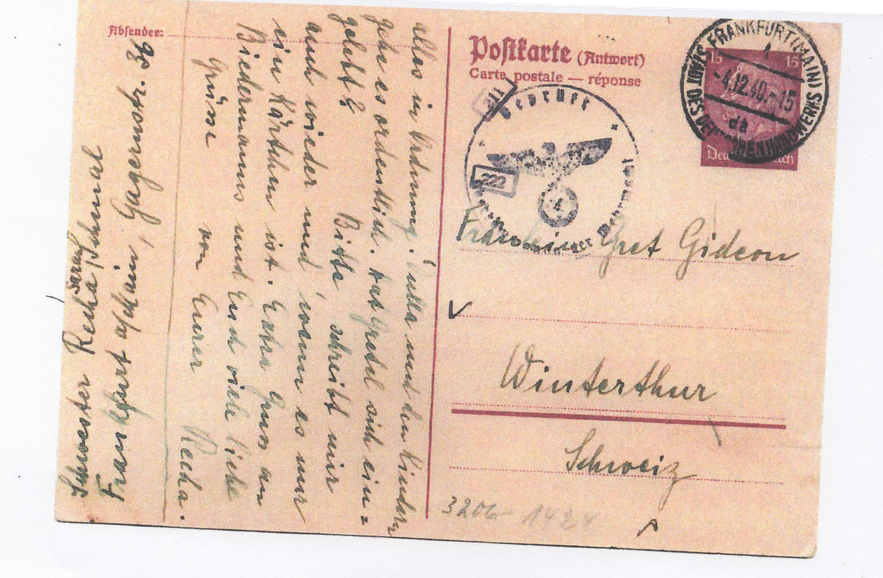
Correspondence mainly from Recha Schmal to Grete Gideon, a childhood friend from Laupheim, Germany, is discoverable in this archival cllection. Also included is an introduction to the correspondence by Recha’s nephew, Steve Schmal. Recha Schmal was a nurse in the Jewish hospital in Frankfurt/M. Early in 1942, both Recha's mother, Betty, and Recha were moved to a Zwangsaltersheim, a forced Jewish old age home in Schloss Eschenau. In August of 1942, they were both deported to Theresienstadt. Betty died in Sep. 1943, and Recha survived. She emigrating to the United States, joining her brother, Dr. Simon Schmal in Ithaca, NY, working as a nurse in the local county hospital. Recha’s friend since childhood, Grete (Margarete) Gideon was born in Tübingen and studied German language and literature at the university in Frankfurt. She escaped Nazism to Switzerland where she worked as a seamstress before finding employment as a librarian in Winterthur.